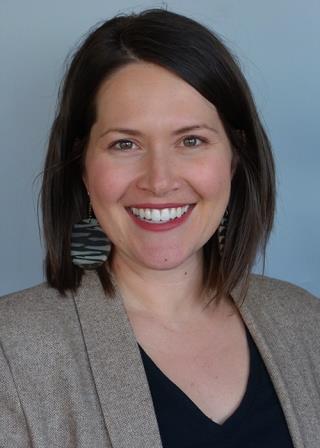Brenna Renn, PhD is an acting assistant professor in the UW Department of Psychiatry and Behavioral Sciences and a licensed clinical psychologist. Her interests include behavioral health assessment and interventions in older adults and increasing access to evidence-based psychosocial interventions in primary care via modified treatment protocols, provider task-sharing, and leveraging mobile applications. Dr. Renn’s work with the Integrated Care Training Program (ICTP) focuses on working to expand the behavioral health workforce through innovative partnerships with local colleges and clinics.
What are your goals for ICTP?
I am passionate about improving access to evidence-based behavioral healthcare, particularly in primary care settings. I’m working with a great team to think about novel ways of expanding the workforce, particularly by exploring ways to train non-expert providers such as bachelor’s level providers. There is a great model in the UK (IAPT, or “Improving Access to Psychological Therapies”) that has served as the inspiration for this. My goals are to work with partners across the state to develop a training program, secure practicum placements, and actually create a pathway to making this vision a reality.
What are your ideas about new programs and/or new directions ICTP should develop?
Our work is largely focused on common mental health conditions (e.g., addressing depression and anxiety) in primary care, but much of my background as a psychologist was working with patients to behaviorally manage other chronic conditions, such as obesity, diabetes, and insomnia. Perhaps once I’m done with tackling the workforce vision above, I’ll think about how to translate many of these same skills to behavioral health conditions more broadly!
What is your greatest achievement?
I try to give myself credit for both large and small accomplishments, since I believe it all adds up to a larger professional direction. But, since I have to choose one, I would say that completing my PhD was a pretty great achievement. I’m a first generation professional and had to take time off at different points in my earlier educational years for financial reasons. I actually worked as a research study coordinator for the UW Department of Psychiatry and Behavioral Sciences for three years after my undergraduate degree as I wrestled with the possibility of graduate or medical school versus remaining in the workforce. However, every time I thought about my future self, it was as someone working in an academic context doing the work of a clinical psychologist (research, teaching, practice, supervising). There were countless times where I had to explain to my family why I’m pursuing graduate school, what psychologists do, what my PhD is in (and why someone would get a PhD), how it is that I’m a faculty member but not really teaching… but now that my training is officially done they can just ask how “work” is now!
What led you to where you are today professionally?
There were a few major influences that shaped my direction. First, as I mentioned above, my professional experience working as a research study coordinator helped shape my expectations of research and pursuing a PhD in clinical psychology. More importantly, though, it was in a lab that did Alzheimer’s disease research and through working with our patient participants I became fascinated by the heterogeneity of the aging process. I worked with vibrant 92-year-old “normal controls” who exercised regularly and volunteered, and frail individuals in their 60s. This also mirrored some personal experiences with grandparents and other members of my family. This led to my pursuit of a PhD in clinical geropsychology and my clinical niche specializing in older adults. This also influenced coming back to UW to complete a T32 research fellowship in geriatric mental health service research, so that I could work to increase access to such care.
Tell us about your favorite vacation. What makes it your favorite?
I had the good fortune spend a couple of weeks in Italy a couple of years ago. I absolutely LOVE planning trips, but they’re usually limited to long weekends in the Pacific Northwest or domestic travel. In this case, I went all out researching the country, listening to podcasts to learn about the “must-sees” and the hidden gems, and trying to get a sense of the culture before our trip. We mostly rented rooms or apartments in the cities we visited, which gave us a great chance to live as the locals do and get in a lot of walking through neighborhoods on our way to see the tourist attractions. It really was everything I had hoped for – the grit and glamour of Rome; the rugged beauty of the coastline; the landscapes of Tuscany; the regional differences in cuisine; the warmth of the Italian people when they knew I was really trying to use their language (and they would respond in perfect English); and of course, the wine, gelato, and food! My favorite places are tied between Florence (for my love of art history and prosciutto!) and the Cinque Terre (for my love of hiking, snorkeling, and anchovies!). A piece of olive focaccia that cost one euro from a little trailside stand that I ate on a hike between villages was one of the best things I’ve ever eaten in my life.
Describe your perfect day outside of work (real or imagined).
As a new mom, the idea of my perfect day has recently shifted! Now I say it’s pretty good if my baby takes a long nap and I can both be productive and relax a bit! But in all seriousness, a perfect day would center around the outdoors (ideally something in the mountains or on the water, or both!), good food and beer or wine, and time with loved ones. Would still be really nice if my baby took a long nap and I could curl up with a novel, too…
